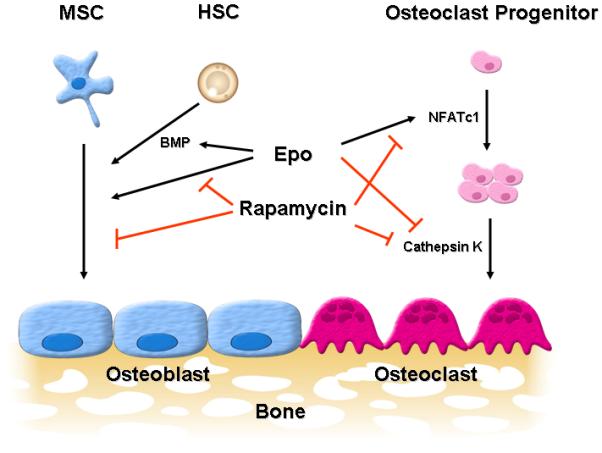Fig. 6.

Model for the role of mTOR signaling in Epo-mediated bone formation. Epo directly or indirectly (by inducing BMP expression from hematopoietic stem cells (HSCs)) induces osteoblast differentiation of mesenchymal stem cells (MSCs) and mTOR inhibition by rapamycin blocks Epo-dependent and -independent osteoblast differentiation. Epo also increases the number of osteoclasts by up-regulation of NFATc1 while at the same time decreases their activity by down-regulation of cathepsin K in an mTOR-independent manner. Taken together, these results strongly indicate that mTOR signaling plays an important role in Epo-dependent and -independent bone formation.
